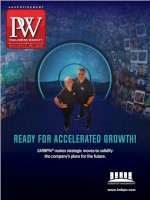In Eisner winner Modan’s Tunnels (Drawn & Quarterly, Nov.), rival archeologists search beneath the West Bank for the Ark of the Covenant.
How did you get into comics?
I was making comics before I was reading comics. When I was growing up, comics almost didn’t exist in Israel. But I was always drawing, from a very early age, and telling stories. I didn’t think of it as something different from regular literature. For me it was natural to read visual stories and create them.
What inspired you to create a graphic novel about archeology?
I knew this guy, a friend of my husband’s. He and his father, when he was in high school, looked for the Ark of the Covenant. At the time, my husband went to dig with them because it sounded like an adventure. A few years ago, I suddenly remembered this story, and I wondered why a person who was not religious, who was not mystical, who had a job, would suddenly leave everything to do such a crazy thing. I interviewed him, and then I started to talk with others: archeologists, collectors, and even one antiquities robber. I started to understand how many wonderful things are collected in archeology: not just politics and history, but also crime and money and obsession.
What was the focus of your research?
I studied in the secular system in Israel, and you learn the stories of the Bible first—and probably in religious schools it’s different—you learn them as legend, as fairy tales. Here, I could explore the question: where is the point that the Bible becomes history? History with proof that it happened—even if it’s politicized, still, it’s history.
What do you hope readers take away from the book?
First of all, I want to make people laugh.
I tried to touch many sensitive subjects, and I wanted to look at life in Israel honestly, to erase my own opinion and look at this combination of people who live here together on this small piece of land, and to believe that all of them are trying their best even when they make bad decisions. I put a combination of characters into a lab, in a tense situation, to see what they do, how they behave. Not to try to judge anyone, but to try and understand the situation. All the absurdity, all the things we agree and disagree on, what we hate and we love....
This was the first time I wrote about people who were not like me. Usually I write characters living in big cities like Tel Aviv or Warsaw. Suddenly I was writing, for example, about very religious people—and I’m an atheist. I went and spoke with religious people; I spoke to Palestinians. If you ask the right questions and you don’t come to argue with people, just to listen to them, you begin to understand very different points of view.



 Volume 268
Issue 38
09/20/2021
Volume 268
Issue 38
09/20/2021





